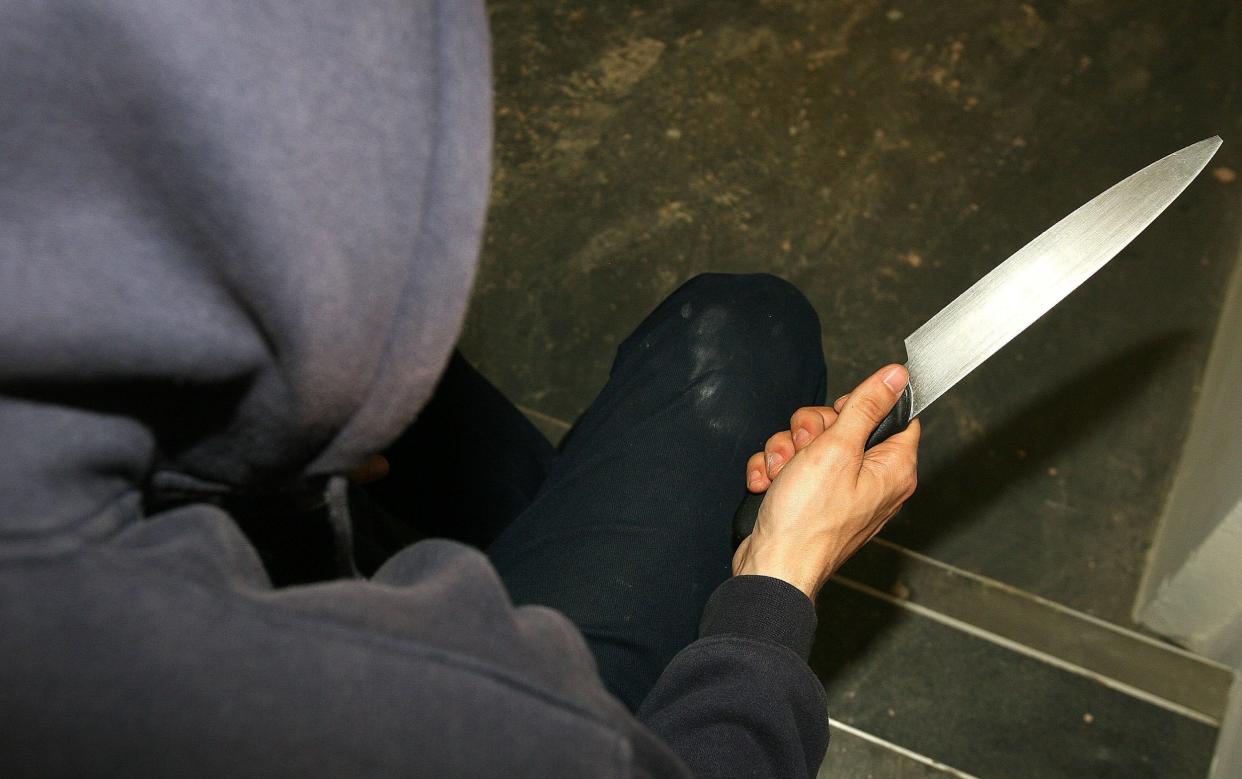British cities are now hostile environments for the law-abiding and decent

A few evenings ago, returning from a walk, I dropped into Waitrose for some supplies. Since the supermarket’s punitive bag policy took hold – only the extortionate “bags for life” are available, clutched by staff to stop them being pinched – I usually try to cram my purchases into my handbag. This time, my phone ended up wedged between a pack of blueberries and some Cornish Quartz cheddar.
A minute or two after leaving the shop, I reached for my bag, and out flew the blueberries, landing on the road under a parked car. I reached over and grabbed them, a kind lady offering to help since I had a baby strapped to my front. I thanked her but declined, and a few minutes later, I was home, had a glass of water, and took the baby off my person.
It was only then that I realised my phone wasn’t in my bag. It’d clearly fallen out. Had someone perhaps turned it in at Waitrose? Should I walk back to where the blueberries fell out and see if it was still there?
It would be easy to find out: I have a service that allows me to track my phone’s location, so I got out my laptop and discovered that, just 25 minutes after I had lost it on a residential street in North-West London, it was several miles away in central London. It must have been stolen, within seconds of leaving my bag.
It’s not that London was ever some kind of haven of morality; my parents left in the early 1980s when I was a toddler because they were worn down by burglaries and the ubiquity of thugs. But there is an unmistakable sense that a new shift has taken place, in which Britain’s cities have seen a near-total breakdown in social trust and civic decency.
There are still plenty of Good Samaritans out there; these are the lovely people who offer up their seats to the elderly, or assist the blind on and off trains and buses. Not long ago, I was sitting on a bench, visibly upset, and a lady came up to me and asked if I was ok. If my mother, who has mobility issues, travels on the Tube with a heavy bag, someone usually offers to carry it up and down stairs.
But increasingly, it feels as if the good people are on the back foot. If it’s still ok to help someone down some stairs, then actually intervening on their behalf, or on behalf of decency more generally, when confronted by criminality or thuggery can carry real physical risk. In Sadiq Khan’s anarchic, dirty London – and in other major cities, too – it can feel too frightening to be a good citizen.
Chillingly, this might be a rational response to what is going on. It’s not just that criminals appear to be getting away with shamelessly breaking the law: the police do not appear to take the likes of theft, shoplifting, and burglaries at all seriously. It’s the shocking stories of what can happen when people do intervene.
Earlier this month, Tieran Carmody, 19, was convicted of stabbing 35-year-old father Max Richardson to death near a children’s play area in Harlow last year after Richardson and neighbours had asked the teenager to stop loitering with his cannabis joint, making children feel uncomfortable.
The killings keep coming. A young man was fatally stabbed after asking muggers to return his gold chains in a park in Edgware, North London. In today’s urban landscape, beloved fathers, ordinary blokes in parks, passengers like the one knifed on a train near Beckenham Junction in March, and pensioners, like 87-year old Bernard Fowler, killed at random in Havering in February, all now seem to be fair game.
Meanwhile, extraordinarily feral, inconsiderate behaviour has become completely commonplace in public spaces – and that’s how it will stay because the thugs and louts now rule Britain. A friend’s grandfather used to make a point of asking people who put their feet on seats on trains to remove them. One day, someone stamped on his foot, and he was understandably reluctant to ask again.
But it’s not just violence that suffuses Britain’s public spaces. It’s also a basic lack of politeness and decency. For reasons that will always remain unknown to the properly-raised, it is now a widespread practice to watch football or blast music on phones’ loudspeakers on public transport – despite the fact that most people have headphones.
People are fearful to intervene. In March, in the maternity ward at UCL hours after my baby was born, a father on the other side of a curtain played Tik Tok clips of rap and gunshots in bursts throughout the night, as we all tried desperately to get some sleep. Nobody dared ask him to stop.
I was on a train from Oxford the other day and a man who got on at Bicester Village immediately began watching football on his phone. As it was a quiet coach, a lady did ask – apologetically – that he stop. The whole carriage tensed in fear – but thankfully he did stop, and instead switched to boring off the ear of the friend I was trying to catch up with.
Can we recover some of what once made us civilised – awareness of others, basic respect for shared environments, ability to defer selfish and base impulses? Not, I would argue, so long as the police seem uninterested in pursuing the criminals, the anti-Semitic protesters in Hamas gear, and the thugs, and focus so much of their attention on law-abiding people who might have posted something off-colour on social media.
This corrupted application of law and order has made Britain’s cities stomping grounds for the very worst in society. Once civilisations slip, they are hard to recover.

